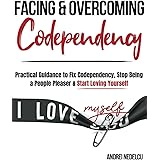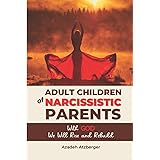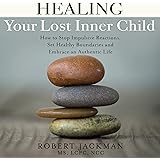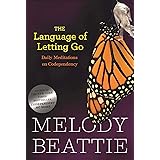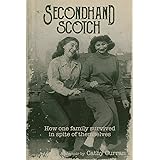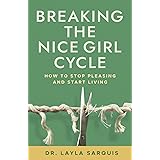Globally, gambling addiction affects millions of individuals. Studies suggest that 0.2% to 0.3% of adults meet the clinical criteria for a gambling disorder, showcasing its widespread impact. This behavioral addiction impacts lives severely. Joe Rogan and Brian Simpson recently discussed this painful reality. They shared raw insights into its insidious grip. Gambling addiction is a powerful force. It drives individuals to desperate measures. It’s truly a devastating condition, as highlighted in their candid conversation.
Understanding Gambling Addiction
The video highlights a key truth. Gambling addiction is a profound sickness. It reshapes a person’s priorities. Joe Rogan observed its powerful grip. He compared it to crack cocaine. This comparison underscores its intensity. It truly impacts individuals deeply. The desire for “action” takes over. This relentless craving consumes thoughts. It overshadows everything else. Money becomes mere ‘gambling coupons’. Compulsive gambling is not just a bad habit. It is a recognized mental health condition. It alters brain chemistry. It creates a powerful compulsion.
The Allure of “Action”: More Than Just Winnings
Why is the ‘action’ so compelling? It’s about the adrenaline rush. This thrill is central to the addiction. The brain releases dopamine during anticipation. This chemical reward is potent. It creates a powerful high. People don’t seek just winning. They seek that intense feeling. They chase the excitement of uncertainty. This pursuit overrides logical thought. The risk itself becomes the primary reward. The thrill of the unknown drives them. Furthermore, the act of “being in action” provides a sense of purpose. It offers an escape from reality. It fills an emotional void. This makes gambling addiction incredibly difficult to overcome.
Real-World Consequences of Compulsive Gambling
Joe Rogan referenced the harrowing film ‘Uncut Gems’. This movie vividly depicts the anxiety. It shows the devastating cycle of chasing losses. Many individuals with gambling problems face similar outcomes. They blow everything. Relationships shatter. Financial ruin becomes common. Personal observations from pool halls confirm this. Rogan saw people lose huge sums. They risked thousands on a game. Sometimes, side bets soared even higher. A $25,000 game could have $500,000 in side bets. This illustrates the scale of the problem. It is a frightening scenario. The consequences are immense. Compulsive gambling impacts every life area. It destroys trust. It leads to isolation. Legal problems often arise. The continuous need for money drives desperation. This creates a cycle of debt and despair.
Gambling vs. Other Addictions: A Comparison
The conversation shifted to other addictions. Joe Rogan pondered alcohol addiction. He noted more success stories there. Many people kick drinking problems. David Tell was cited as an example. Tell overcame alcoholism. He continued a successful career. Alcohol addiction often stems from pain. It’s a way to escape reality. Childhood trauma or failures contribute. Genetics also play a role. Some families have a genetic propensity. Alcoholism runs through generations. This makes recovery more complex. Both gambling and alcohol addictions are serious. They share underlying mechanisms. Both involve compulsive behavior. Both impact brain chemistry. However, their pathways to recovery differ. Each addiction presents unique challenges. Understanding these differences helps in treatment.
The Nature of Addiction: More Than Physical
Addiction is not always physical. Rogan shared his vape experience. He felt addicted, but not physically. He could go a week without it. Yet, he still desired it. This highlights a crucial point. Behavioral addictions are very real. They don’t require chemical dependency. The brain adapts to the pleasure. It creates strong psychological cravings. This makes quitting incredibly hard. It is difficult to explain this. People who haven’t experienced addiction struggle. They don’t understand the pull. The compulsion feels overwhelming. It defies logic. Knowing something is bad often doesn’t stop it. The brain’s reward system is hijacked. It prioritizes the addictive behavior. This overrides rational decision-making.
Recognizing the Signs of a Gambling Problem
Identifying a gambling problem is crucial. The signs are often subtle at first. They escalate over time. Common indicators include:
- Preoccupation with gambling activities.
- Needing to gamble with increasing amounts to feel excitement.
- Repeated unsuccessful attempts to cut back or stop.
- Restlessness or irritability when trying to reduce gambling.
- Gambling to escape problems or negative moods.
- Lying to family members or therapists to conceal gambling activity.
- Jeopardizing or losing significant relationships, jobs, or career opportunities due to gambling.
- Relying on others for money to relieve desperate financial situations.
These symptoms paint a clear picture. Early recognition aids recovery. It allows for timely intervention. Awareness is the first step. If you recognize these signs, seek help.
Seeking Help for Compulsive Gambling
Help is available for gambling addiction. It starts with acknowledging the problem. Many resources exist. Support groups like Gamblers Anonymous offer a safe space. Therapy, especially cognitive-behavioral therapy (CBT), is effective. It helps change thinking patterns. Medications can sometimes assist. They address co-occurring conditions. Family support is also vital. Loved ones can offer crucial encouragement. Professional intervention often speeds recovery. Do not hesitate to reach out. Recovery is a journey. It is a difficult path. But it is always possible. Breaking free from this grip is achievable. Support systems are crucial for long-term success. Overcoming gambling addiction is a marathon, not a sprint.



